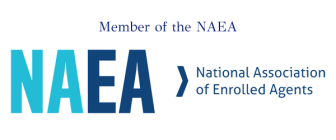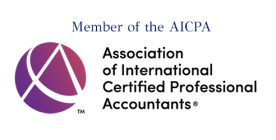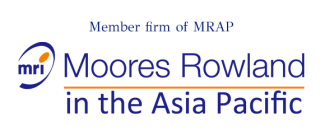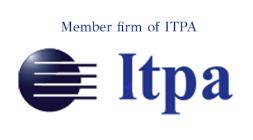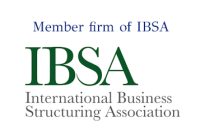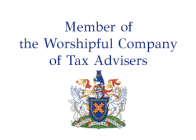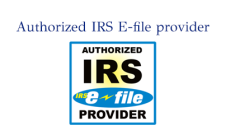Are you looking for a US tax accountant in Singapore?
Need help with your US tax planning?
Facing challenges with US expat tax filing?
Are you having questions about US income tax for expats?
Unsure about US taxes for expats in Singapore?
American Taxation Service in Singapore for US Expats and Those Exposed to the US Tax System
Many of our clients will agree that HTJ.tax is the best US tax service in Singapore for Americans living and working here.
We are an American company (US expat tax specialist) that provides American taxes services to Americans living abroad as well as everyone exposed to the US taxation Singapore system.
We are a certified IRS tax preparer for Americans abroad who want help filing their taxes with the IRS or need advice on how to optimize their cross border tax obligations.
Hayden T Joseph does business as (DBA) Advanced American Tax. Advanced American Tax (a member of Moores Rowland Asia Pacific) provides a wide range of services for Americans living in Singapore as well as US expats who have exposure to the American tax system, including individuals, companies, and trusts.
The Leader of our US Tax Singapore Team has successfully completed the Comparative Tax Program at Harvard University. Read more…
Featured On

We would like to begin by confirming four points –
1. If you are US exposed (citizen, green card or substantial presence), you are usually taxed on your worldwide income;
2. These tax obligations do not stop because you reside outside of the US;
3. Even if your earnings are under the threshold of the foreign earned income exclusion, and you reside outside of the US, you may still have to file US tax returns in Singapore;
4. Since the early 1970s, US persons have been obligated to report any foreign financial assets once the maximum aggregate balance exceeds a certain threshold.
Why Choose Us As Your Prefered US Tax Preparer in Singapore?
We work on International Tax in general, and United States International Tax in particular
• We are listed in the IRS directory here (it is a searchable database)
• We are also listed on the US Embassy website
Deductions and allowances for the US expats
Most US expats in Singapore are not aware that they can claim certain deductions and allowances to reduce their tax liability in the US. They may be eligible for reduced rates on taxes withheld from their compensation, deducting moving expenses, or taking advantage of foreign earned income exclusions which could save them thousands of dollars each year.
We will review your situation with you and make recommendations on the best way to reduce your tax liability.
100% Accurate US Tax Compliance
When you are a US citizen / US expat living in Singapore, it is essential to comply with the very complicated tax codes of both countries. This can be quite daunting for many people and they often find themselves in trouble because of this complexity. They end up owing taxes that would have been avoided had they taken care of their obligations from the beginning. HTJ will ensure that you are compliant and avoid any potential penalties.
Services for Everyone Exposed to the US Tax System
HTJ is also here for those who have no intention of living in America again, but still require tax help or advice about their exposure to American taxes. If you work remotely from Singapore (e.g., as a freelancer or digital nomad) or just make money in American dollars (e.g., through currency exchange), then your income will be subject to American taxation laws even if all other aspects of your life reside outside America’s borders, and HTJ can handle this complexity on your behalf with ease!
We are leading USA expat tax services Singapore providers experienced in ensuring US expats worldwide minimize IRS tax liabilities through deductions, credits, exclusions, and treaties.
Income Tax and Self-Employment Tax Assistance for US Expats in Singapore
HTJ provides tax assistance to both employees of American companies or freelancers who work remotely from Singapore on a project basis as well as individuals receiving income through currency exchange. We can help you with your American tax obligations and ensure you are compliant with the IRS.
Utilizing our US Tax Services in Singapore Will Save You Time and Effort
There are many reasons to choose HTJ.tax for your American tax service in Singapore, but our main focus is reducing the stress and time involved with filing taxes for Americans abroad.
We’re a great option if you need help with your US taxes but don’t have the time to deal with all of that complexity yourself. We will explain each and every step in detail so you know what’s going on, and we’ll work hard at making sure everything is accurate for an optimal outcome.
As an authoritative USA tax accountant Singapore firm, we leverage expertise in international tax codes to legally reduce IRS tax obligations for Americans abroad.
We are the Most Established and Trusted US Tax Consultancy in Singapore.
We’ve been providing our US tax consultancy services to Americans living in Singapore for over a decade now, and we’re still the go-to company when it comes to filing taxes with the IRS.
We offer leading US tax advice Singapore tailored to the specific circumstances of each American expat or global citizen, with a focus on compliance and legal tax minimization through planning.
As premier US expat tax Singapore specialists, we leverage our expertise to ensure Americans overseas remain compliant while taking advantage of deductions, exclusions, credits and treaties to reduce IRS tax obligations.
We Offer Competitive Rates and Personalized Service That is Tailored to Your Needs
While we may not be the cheapest US tax preparer in Singapore, our rates are priced competitively, and we offer personalized service which is tailored to your needs.
We are leading USA expat tax services Singapore providers experienced in ensuring US expats worldwide minimize IRS tax liabilities through deductions, credits, exclusions and treaties.
Our US tax advisor international Singapore team provides expert guidance on IRS rules, regulations and filings to ensure compliance and optimized cross-border tax planning for US expats.
We Guarantee 100% Confidentiality and Discretion at All Times
Most of our clients are high net-worth individuals that demand complete confidentiality and discretion. You can count on us to keep your information private, so don’t worry about the potential for embarrassment or legal implications in regard to any sensitive matters we might have to discuss with you.
As an authoritative international tax advisor Singapore firm, we leverage expertise in both US and Singapore tax codes to legally minimize IRS tax liabilities for Americans overseas
We Have Multiple Offices All Over the World so We Can Assist Your US Tax Needs Wherever You Go
Many of our clients tend to change locations every few years, which is why we have offices all over the world that can handle your US tax needs no matter where you are. Some of our locations include Portugal, Hong Kong, United Arab Emirates (Dubai), Spain, and, well, Singapore.
As an authoritative USA tax accountant Singapore firm, we leverage expertise in international tax codes to legally reduce IRS tax obligations for Americans abroad.
We Are a Company That Offers US Tax Advice, not Just Accounting Services
Our assistance goes beyond just helping you with your tax returns. We also offer help on topics such as US estate planning, asset protection, and immigration law matters for Americans living abroad.
Our USA tax Singapore team helps American expats and global citizens understand their IRS filing requirements and develop plans to reduce tax liabilities.
We offer tailored US taxes for expats in Singapore guidance and services to ensure Americans abroad remain compliant while taking advantage of exclusions, deductions, credits and more to minimize IRS tax obligations.
HTJ provides a full range of services to comply with the very complicated tax codes of both countries.
Our Team is Composed of professional US Tax Experts Based in Singapore Who Know How to Handle All Your Needs
Every member of our team is a professional US Tax Accountant. They have years of experience dealing with the complexities that arise from this special situation and will work hard to understand your needs so they can provide you with a tailored solution that is 100% guaranteed.
Our team members are experts in US tax law and have helped thousands of clients over the years. We know that this can be a daunting task, but we’ll do our best to make it as painless as possible for you.
As premier US taxation services Singapore specialists, we utilize expertise in IRS rules and international tax codes to reduce US tax obligations for expats through planning.
With decades focused on USA taxation service Singapore, our team has the experience and expertise to guarantee compliance and legally minimize taxes through planning.
Local Knowledge – We Know How to Help You Navigate Through All the Rules and Regulations That Apply to Americans Living in Singapore
To guarantee full compliance it is mandatory to know both the US and Singapore tax law. We are here to help you comply with both country’s regulations, as well as offer a full range of services so you can never find yourself in any situation without assistance.
We are a trusted US tax service for Americans in Singapore dedicated to helping US citizens and expats abroad understand and meet their IRS filing obligations.
With decades focused on US taxation service Singapore, our team has the experience and knowledge to ensure compliance and legally minimize taxes for Americans overseas.
Our USA taxation Singapore experts understand the intricacies facing US expats overseas. We leverage this knowledge to ensure compliance and reduce IRS liabilities.
We Have a Team of Qualified and Experienced American Tax Advisers Who Specialize in Helping Americans Living Abroad.
Our team is composed of US tax accountants based in Singapore. They have years of experience dealing with the complexities that arise from this special situation and will work hard to understand your needs so they can provide you with a tailored solution that is 100% guaranteed.
Our US tax planning services Singapore specialists create tailored strategies to reduce US tax liability for Americans overseas through exclusions, deductions, credits, treaties and more.
As leading US tax preparer Singapore experts, we prepare timely and compliant returns for US expats that minimize IRS obligations through planning and preparation of deductions and credits.
Our team of US taxation Singapore experts understands the intricacies Americans abroad face. We leverage our knowledge to ensure compliance and legally reduce your IRS tax liabilities.
Our US tax accountant in Singapore team helps US expats and global citizens file timely, compliant returns that reduce IRS tax obligations through exclusions, deductions, credits and treaties.
We are here for you, no matter what may come up when it comes to taxes.
We are conveniently located in the centre of Singapore
While we are primarily an online business and do not encourage walk-ins, we do have an office in Singapore. Our US tax consultancy services are always available online, but if you need to meet with someone face-to-face that’s not a problem either.
As leading US tax Singapore specialists, we have extensive experience helping US citizens overseas remain compliant while legally minimizing tax obligations through credits, deductions, exclusions and treaties
You Can Rely on Us to Provide You with Quality Service Throughout Your US Tax Return Process
Should you need references from our existing clients, we will be happy to provide them for you.
We are leading American tax Singapore specialists dedicated to helping US citizens abroad file timely, accurate returns that take advantage of exclusions, deductions, credits, and treaties to minimize IRS obligations.
Our US tax consulting Singapore team develops customized strategic plans leveraging in-depth knowledge of international tax codes to legally minimize IRS tax obligations.
We provide expert assistance with US tax returns Singapore filing, planning, and reporting to help Americans abroad meet IRS obligations and minimize tax liabilities.
We Speak English So There is No Need to Worry About Language Barriers
While our multi-national team is located in different parts of the world, we all speak English so you can rest assured that there will be no miscommunication when it comes to your taxes.
Our American tax service Singapore team understands the intricacies Americans overseas face. We utilize our knowledge to ensure compliance and develop targeted plans to reduce your IRS tax liability through credits, deductions, exclusions and more.
If you are looking for a US tax accountant or US tax consulting firm in Singapore, then by now you should know that we are one of the best options.
US Taxes for Expats in Singapore
Key Insights
- Although there is no US tax treaty with Singapore, you can still use the Foreign Earned Income Exclusion, foreign tax credits, and the foreign housing exclusion to save on your US expat taxes.
- US citizens are required to pay Social Security taxes, even if they also contribute to the Singapore Central Provident Fund (the local Social Security equivalent) because the countries do not have a Social Security agreement.
- If you are self-employed in Singapore, you will need to adhere to additional tax obligations to make sure you are compliant in both countries.
- US citizens with bank accounts or other financial assets in Singapore may be required to report those funds to the IRS by filing the FBAR form.
Our US Tax Expertise Includes:
Individual clients come to us with complex, multi-jurisdiction tax issues related to cross-border employment and investment opportunities. Similar to an interpreter or guide who helps travelers understand the language and customs of a particular country, we explain tax concepts and laws that are foreign to our clients. We prepare U.S. federal and state income tax returns for U.S. expatriates, foreign nationals and individuals with international financial interests.
Our international tax consulting expertise includes analysis of tax treaties, sourcing of income, and reporting of foreign bank accounts, as well as foreign corporations, partnerships and trusts. As consultants, we help individual clients develop cost-effective strategies, propose solutions and prepare individual tax projections. We also work closely with our clients’ attorneys and other advisors to provide comprehensive advice
We have significant experience assisting our clients with complicated, international tax issues.
The following list represents some of the areas in which we have provided both planning and compliance services for our clients:
- US shareholders of foreign corporations
- US partners in foreign partnerships
- US grantors and beneficiaries of foreign trusts
- US shareholders of Passive Foreign Investment Companies (PFICS)
- Reporting for Foreign Bank and Financial Accounts (FBARs)
- Blocked income reporting for deferral of tax in currency restriction situations
- Donations to foreign charities by US private foundations via expenditure responsibility grants
- Income tax treaty analysis for various issues including determination of residency, re-sourcing of income to avoid double taxation, reduction or exemption of tax
- Determination of residency for income tax purposes for foreign nationals including optimization of elections for first and last year of residency
- Social Security tax implications to compensation of foreign nationals and US expatriates including application and analysis of Totalization agreements
- Foreign tax credit optimization including analysis of paid versus accrued methods and maximizing foreign source income
- Optimization for US expatriates including analysis of foreign tax credit versus foreign earned income exclusions
- Reporting of foreign rental properties including proper depreciation methods and treatment of rental of a principal residence
- Reporting and planning for US real property interests by nonresidents including applications for reduction/exemption from withholding on sale proceeds
- Reporting and planning for nonresidents with US investments or US effectively-connected income
- State residency and domicile issues for foreign nationals and US expatriates
- Reporting gifts and inheritances from nonresidents
- Consulting to employers of international assignees relating to tax equalization policy development and application, tax planning for international assignments including coordination with tax advisors in local jurisdictions, compensation structuring, payroll reporting and employee education and tax return preparation
- Determination of residency for US citizens in US possessions
- Given the uniqueness of the U.S. Tax Code, we are perfectly positioned to assist American Citizens, American Permanent Residents (Green Card holders) and American companies who want to expand to Asia with:
- Incorporation and corporate structuring
- Annual returns for both Asia and the United States
- Work passes across the region
- Corporate secretarial and full accounting services
For American Citizens, American Permanent Residents (Green Card holders) and American companies already in Asia and Europe, we can assist with U.S. tax issues including -
- US Tax Amnesty – both Offshore Voluntary Disclosure (OVDP) and US Streamlined Tax Amnesty
- FATCA compliance including Form 8966, W-8 Ben-E and entity analysis
- Reporting of foreign companies, partnerships and foreign trusts
- Passive Foreign Investment Companies (PFICs)
- Foreign Bank Account Reporting (FBARs)
- Pre-immigration Tax Planning
- Cross border tax planning
- Expat Salary negotiation
- Corporate structuring
- ITINs (U.S. Tax IDs)
- Ordinary 1040s
With economies rather stagnating in much of the western world outside the US, a new dawn has broken in Asia raising fresh hopes that having learned the bitter lessons of fiscal prudence the region is finally ready to fulfil its promise to make this century ‘the Asian century’. True there is much to do, but the introduction of major political and economic reforms across the region augurs well for the future, particularly in the medium term, especially as a new more vibrant leadership has come to the fore. That is not to say everything will be plain sailing, of course, but the prospects for a prosperous journey look fair indeed. To help guide you along the way, the Moores Rowland firms across Asia combine global knowledge and best practices with core Asian values to produce seasoned yet individually tailored courses of action to best suit your needs.
Moores Rowland Asia firms provide a range of professional services with a focus on audit, tax, accounting, payroll, risk advisory, IFRS, restructuring and transaction support. Beyond these, our member firms also offer a wide range of specialist services from expatriate advice to human resource consulting. Moores Rowland clients are increasingly looking beyond their national borders for new opportunities. The close relationships within the network mean that clients can easily be connected to a like-minded firm of professionals in another country, that they can be assured will have their business interests at heart – no matter what services are required or where they are needed.
Typical American taxation questions we answer on a daily basis are:
- Could you help me understand the options of reducing my tax bill?
- How do my Singapore financial statements affect my filing?
- Is there anything else that I need to report to the IRS?
- If I’m an American staying in Singapore for a short period of time, does it affect my taxes?
Our US tax advisors in our Singapore office can provide you with all the necessary guidance and help whether you prefer a DIY approach or you’d rather leave it to an experienced US tax accountant and save your precious time.
Whether you’re living in or moving to Singapore, you will most certainly need to obtain a solid understanding of both local and international rules (like double taxation treaties) that are applicable to expats in Singapore.
Or, as an alternative, you may put that burden on our shoulders.
Tax filing for US citizens living abroad (including Singapore) is our expertise and we’d gladly help.
Common US Expat Tax Challenges and Opportunities in Singapore
- Whether you are considering US expat tax advisory services or just browsing the web, here’s what you need to know: Americans and US Green Card holders living in Singapore are required by law to file a US tax return each year.
- You might be subject to FBAR and/or FATCA reporting requirements.
- Many of our clients can lower their US tax bills and avoid dual taxation with certain tax strategies (like foreign earned income exclusion or foreign tax credit). Depending on your situation, different strategies might fit you better.
- Also, there are numerous rebates and incentives available to you that you might not be aware of.
A Few Reasons to Choose Us as Your Preferred American Expat Taxation Service in Singapore
○ Listed Accounting Firm in the IRS directory (searchable database)
○ Listed US Tax Preparer in the US Commerce Department website
Firm Successes
Looking for an American Tax Service in Singapore?







